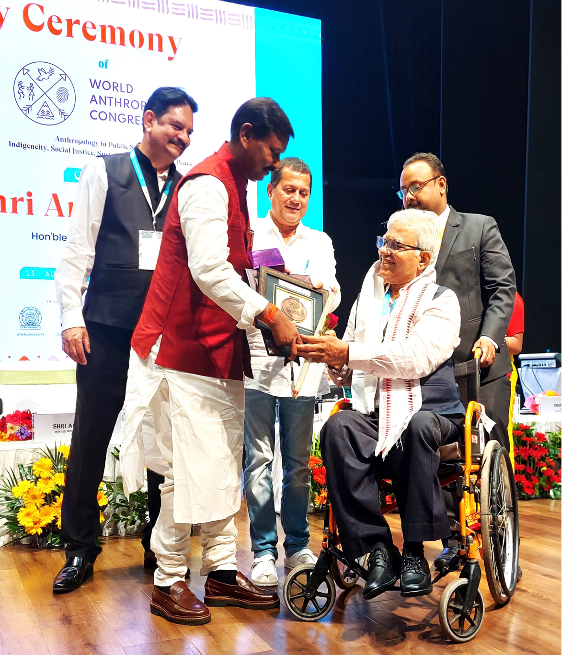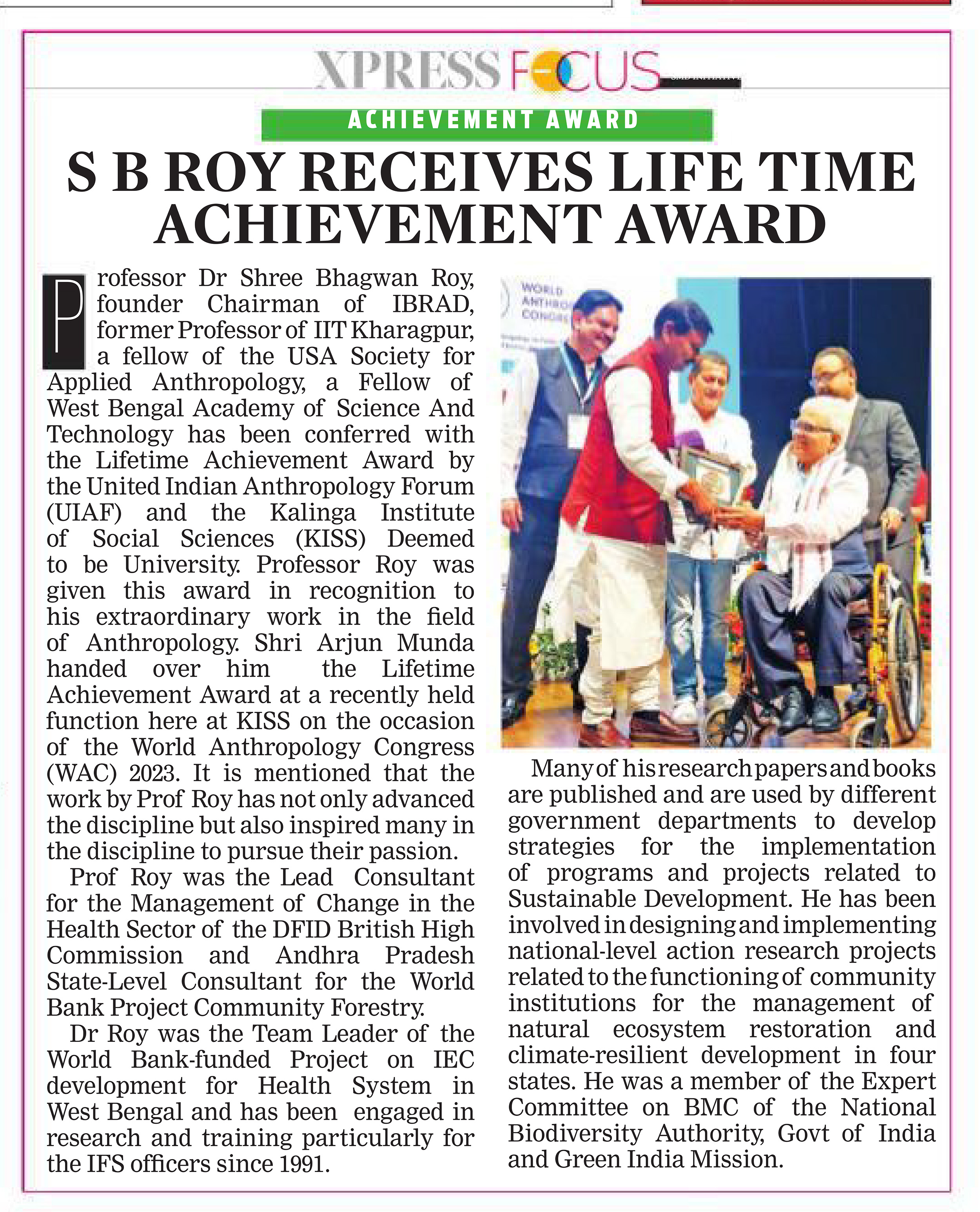An account is required to join the Society, renew annual memberships online, register for the Annual Meeting, and access the journals Practicing Anthropology and Human Organization
- Hello Guest!|Log In | Register
Shree Bhagwan Roy Receives Life Time Achievement Award
S B Roy Erudite Practioner of Applied Anthropology
Receive Lifetime Achievement Award
 Professor Dr Shree Bhagwan Roy, founder Chairman of IBRAD, former Professor of IIT Kharagpur, a fellow of the USA Society for Applied Anthropology, and a Fellow of West Bengal Academy of Science And Technology has been awarded the lifetime achievement recognising the outstanding contributions that he has made to the field of Anthropology, the United Indian Anthropology Forum (UIAF) and the Kalinga Institute of Social Sciences (KISS) Deemed to be University felicitated him on the occasion of the World Anthropology Congress (WAC) 2023 for his Lifetime achievement and celebrate his many accomplishments. It is mentioned that the work by Prof Roy has not only advanced the discipline but also inspired many in the discipline to pursue their passion. Prof Roy had been the Lead Consultant for the Management of Change in the Health Sector of the DFID British High Commission. An Andhra Pradesh State-Level Consultant for the World Bank Project Community Forestry Dr Roy had been the Team Leader of the World Bank-funded Project on IEC development for the Health System in West Bengal and has been engaged in research and training particularly for the senior Indian Forest Offices officers since 1991.
Professor Dr Shree Bhagwan Roy, founder Chairman of IBRAD, former Professor of IIT Kharagpur, a fellow of the USA Society for Applied Anthropology, and a Fellow of West Bengal Academy of Science And Technology has been awarded the lifetime achievement recognising the outstanding contributions that he has made to the field of Anthropology, the United Indian Anthropology Forum (UIAF) and the Kalinga Institute of Social Sciences (KISS) Deemed to be University felicitated him on the occasion of the World Anthropology Congress (WAC) 2023 for his Lifetime achievement and celebrate his many accomplishments. It is mentioned that the work by Prof Roy has not only advanced the discipline but also inspired many in the discipline to pursue their passion. Prof Roy had been the Lead Consultant for the Management of Change in the Health Sector of the DFID British High Commission. An Andhra Pradesh State-Level Consultant for the World Bank Project Community Forestry Dr Roy had been the Team Leader of the World Bank-funded Project on IEC development for the Health System in West Bengal and has been engaged in research and training particularly for the senior Indian Forest Offices officers since 1991.
Roy states that poverty, malnutrition, and lack of education may cause extreme suffering in the indigenous tribal community due to several factors. One of the factors, in some cases, may be the cultural construct (bias). Here, the role of the development agency, Anthropologists in particular is to facilitate creating awareness building cognitive knowledge and facilitating building appropriate social order and institutions in the framework of the enabling public policy. It requires policy research and sound theories of social change, cultural construct as well and cultural resilience for climate-resilient development.
Roy firmly believes that culture is not static, neither is an ecosystem. They co-evolve. Social and ecological processes are twined as a web of systems. Intervention in social order will bring environmental and economic change. Cultural practices and social institutions are influenced by different agents like, changes in the natural landscape, market forces, media, political slogans, exposure to technology, education and many social triggers that bring social change and co-adaptation. But sometimes the cultural Construct may become the bottleneck in the development and growth of the community due to their own “ Sacred and Profane Knowledge’ He questions - why can not Anthropologists apply the theory of social change and the concept of co-adaptation and act as change agents to facilitate social development.
Roy is considered one of the pioneers in the development of methods of Digital Ethnography for the application of Sustainable Tribal Development. His approaches to Digital Ethnography for tribal development are not only recognised by the government of India, but a letter is issued by the government to all the states to try this method for the public functionaries for building cultural resilience of the tribal community through well-established socio-ecological approaches to raising awareness, cognitive stimulation, formation of a cohesive group, building social institutions, and enhancing competency through social learning which helped the community with different options for climate-resilient livelihood.


Cart
Search